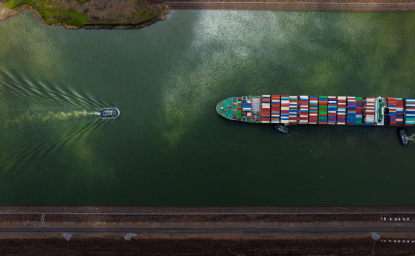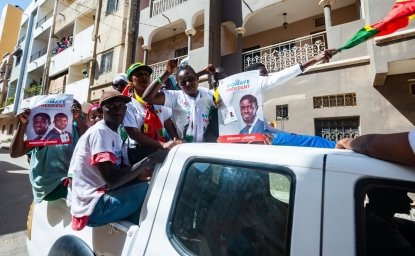Afghanistan: Looking at the Future
Remarks by Dennis Kux, former U.S. Ambassador to Cote d’Ivoire, and Senior Scholar, The Wilson Center
Delivered at the House of Commons, January 26, 2012
In November 2010 NATO agreed to gradually transfer responsibility for Afghan security from ISAF to Afghan forces. After the transition is completed on December 31, 2014, what will happen then? Will Afghanistan see a repeat of the civil war that followed the departure of the Soviets in 1989? Washington and its allies hope not. To try to prevent this from recurring, they are seeking an internal Afghan political settlement that ends the insurgency and incorporates the Taliban peacefully into the Afghan body politic. The process has gotten under way, but there are many bumps on the road to a satisfactory conclusion. One of the major unknowns at this juncture is whether the Taliban leadership is really serious about negotiations.
At the same time, Washington is encouraging the neighbors of Afghanistan and other relevant powers to reach a regional understanding under which all would agree not to meddle in Afghanistan’s internal affairs and to focus rather on promoting Afghanistan’s economic well-being by taking advantage of its geographic location at the crossroads of west, south and central Asia or what Secretary Clinton calls: promoting the “New Silk Road.” The prospects for achieving a “regional settlement” by the time the transition ends remain very uncertain. The problem is that failure will almost surely mean that Afghanistan will once again face a tragic civil war after NATO departs. As in the 1990s, local factions and warlords backed by their external supporters will vie for power. This would be a catastrophe for Afghanistan and a disaster for Pakistan. Such a development would also mean that a war costing the US about $750 billion and the lives of about 2,500 GIs by 2015 would have been largely in vain.
While finding a way to bring the Taliban into the Afghan political process and to end the their insurgency will be extraordinarily difficult, I think it may be even harder to come to positive closure on a highly complex regional settlement that includes Pakistan, India, Iran, Uzbekistan, Kazakhstan, Kirgizstan, Russia and China. Today, many experts in Washington say that a regional accord is a worthy idea that will not happen because the main players (India, Pakistan, Iran, and Russia) all fear their interests will suffer unless they have proxies in Afghanistan after NATO departs. On a positive note, the neighbors do agree that a peaceful, non-threatening Afghanistan would better serve their national interests than renewed civil war. Yet, Islamabad, Delhi, Tehran, and Moscow are skeptical that this will happen and are basing their future plans on the assumption that it will not. The challenge for diplomacy is to convince the neighbors that it is possible to achieve a stable Afghanistan that does not cause problems for the region.
At present, the Americans are leading the diplomatic effort, but while, well intentioned, the current approach may fall short of what is necessary to give success a chance. One problem with the current process is that a continued US military presence after 2014 is a major issue in the negotiations. Another is that the Americans and the Iranians, important in the Afghan end game, do not speak to each other. These issues raise the question of whether it is wise for Washington to be in the lead. Personally, I believe that the UN is better placed to take on this task. To this end, the Secretary-General, with the blessing of the Security Council, should appoint a Special Representative to coordinate the negotiating process. This is, in fact, what happened in the admittedly less complicated negotiations that led up to the Geneva Accords during the 1980s. It is logical that a similar procedure be followed in seeking a regional accord for post-2014 Afghanistan. The US will obviously play a key role, but it should not be in the lead.
What sort of an agreement should be sought? Clearly communiqués drawn up by multi-lateral conferences like the recent gatherings at Istanbul and Bonn and similar hortatory statements will be inadequate. Something much stronger that includes an enforcement mechanism is needed. There is, in fact, a model for an Afghan settlement that may initially seem bizarre, but on examination provides a useful roadmap, specifically, the way that the Congress of Vienna dealt with Switzerland in 1815.
At first glance, economically poor, politically turbulent, tribal and largely illiterate Afghanistan has little in common with wealthy, peaceful, democratic and technically advanced Switzerland. But geography placed Afghanistan, which is like Switzerland a highly mountainous country, at a crossroads: Afghanistan between south, west and central Asia and Switzerland between Germany, France, Italy and Austria. The Swiss, like the Afghans, are split into different ethno, linguistic and religious groups. The German Lutherans of Zurich, the French Catholics and Calvinists around Lake Geneva, and the Italian Catholics of Ticino have little in common but their Swissness. Both countries also have a tradition of decentralized political power. Before the modern era, Switzerland, like today’s Afghanistan, was extremely poor and suffered from interference by its neighbors (the Bourbons of France and the Hapsburgs of Austria vied for influence). Finally, like Afghanistan, Switzerland was renowned for the fierce warrior spirit of its fighters. Today’s Swiss Guards at the Vatican are living reminders of the fighting skills of the Swiss in former centuries. Neither British, Russian, nor NATO soldiers need to be reminded of the prowess of the Afghans.
What did the Congress of Vienna do with regard to Switzerland? On November 20, 1815, it declared that “the permanent neutrality of Switzerland, the inviolability of its territory, and its independence from all foreign influence were in the true interests of Europe.” The Congress also settled a number of border problems that Switzerland had. November 20, 2015 will be the 200th anniversary of the Congress of Vienna's decisions about Switzerland. Wouldn’t it be wonderful if, on that day, the relevant nations gathered in Vienna to sign a solemn international treaty under the aegis of the UN Secretary General that declared that Afghanistan would be permanently neutral (that means no post-2014 US military bases), that agreed on non-interference in Afghan internal affairs (this would need to be spelled out in detail), and that recognized the frontiers of Afghanistan, including the Durand Line (This action would remove a legitimate grievance of Pakistan against Afghan irredentist claims on Pushtun-populated areas, Khyber-Pukhtunwha and FATA).
As nations often do not keep their word and Afghanistan probably will not be sufficiently strong for the task, there should be an enforcement mechanism to help ensure implementation of the non-interference pledges. Given Afghan sensitivities, all foreign forces should come from Muslim countries. A major Islamic country, for example, Turkey, should be in charge of the troops linked to the enforcement mechanism.
This all may seem like a pipe dream, but what is the alternative? Following the road map that the “Swiss solution” provides is certainly preferable to lumbering down a path that seems likely to fall short and tragically tumble Afghanistan once again into civil war, stirring up the dangerous rivalry between nuclear India and nuclear Pakistan and ensuring that Afghanistan will remain a major source of regional instability for the foreseeable future. Is that what we want to achieve after more than a decade in Afghanistan? NATO soldiers have done their job in blunting the renewed Taliban insurgency. Now it is up to the diplomats to ensure that Afghanistan’s fifth war since the country was founded in 1749 does not end as badly as the jihad against the Soviets.





